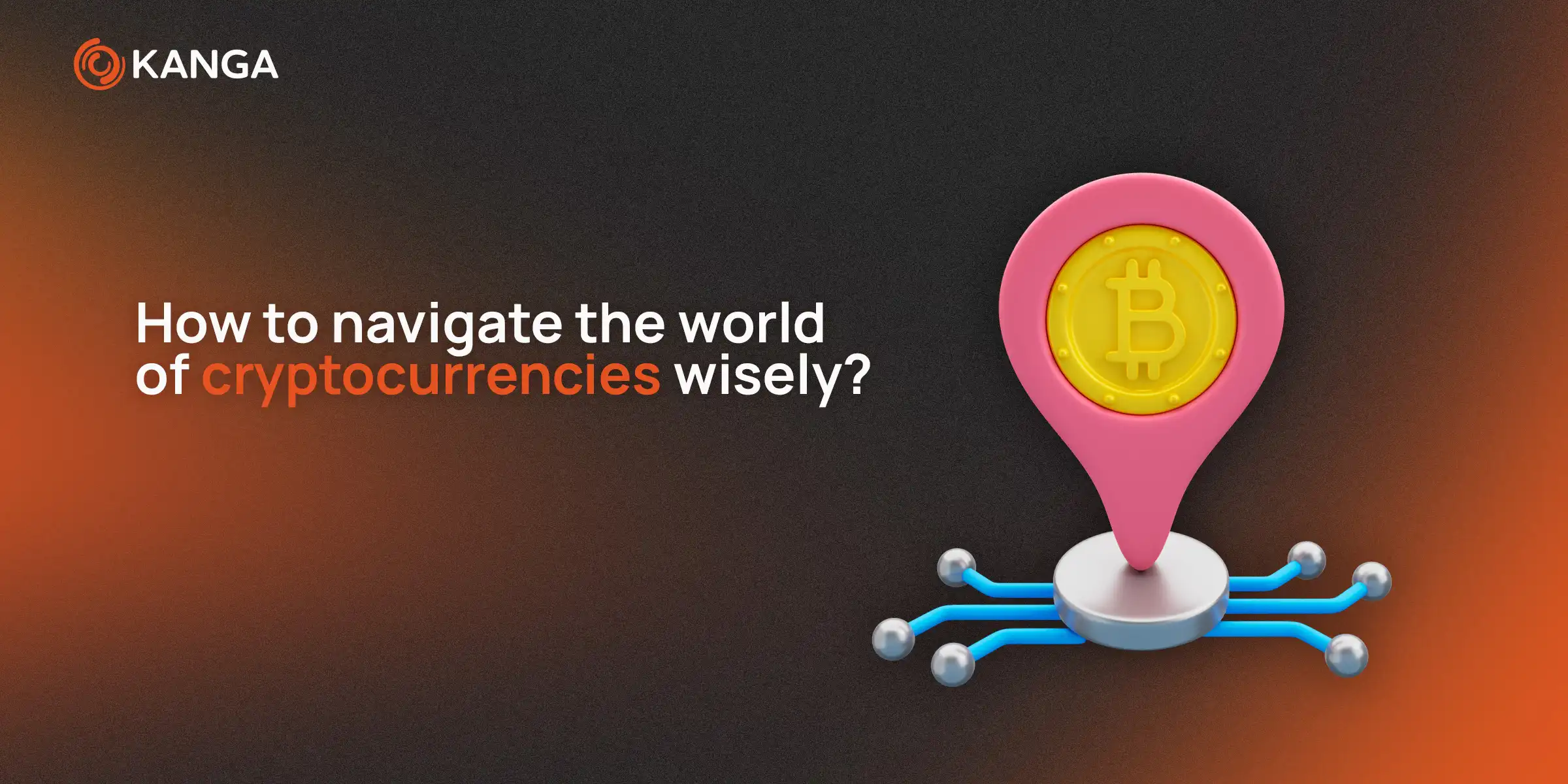How to Handle the Ups and Downs in the World of Investing

Written by
Kanga
Published on
Investing in cryptocurrencies is not just about understanding financial markets, but also about dealing with the storm of emotions that this dynamic market brings. Investors, both those new to the crypto world and experienced players, face numerous challenges. Each day can bring unexpected price changes, and with them, emotional highs and lows. This constant fluctuation not only tests the psychological resilience of investors but also their ability to make rational and well-thought-out decisions.
In this article, we will delve into the psychological aspects of investing in cryptocurrencies. We will consider how these constant changes affect investment decisions and the well-being of investors. We will think about how we can better understand and manage the emotions that often accompany investing in cryptocurrencies, to avoid impulsive decisions that can lead to undesirable financial losses.
Recognizing Emotional Highs and Lows
We often mention that investing in cryptocurrencies resembles an emotional rollercoaster. When the value of cryptocurrencies rises, it’s easy to succumb to euphoria. This euphoria, although exciting, can lead to risky investment decisions. Investors may be tempted to invest more than planned, lured by the promise of quick profits, whether through excessive investment in a fleeting trend or by taking unconsidered risks. However, as the history of the markets has shown many times, such behavior can lead to significant losses when the market suddenly turns.
On the other hand, when values fall, fear and panic emerge. Investors may feel strong pressure to quickly sell their assets in the hope of avoiding further losses. This impulse to sell when the value drops may seem rational but is often the result of a short-sighted approach and a reaction to the prevailing atmosphere of fear. Short-term drops don’t always, after all, indicate a long-term downward trend.
How can we cope with such emotional highs and lows?
- Remember that the cryptocurrency market is unpredictable and requires a balanced approach.
- Develop strategies that allow for maintaining emotional balance, regardless of momentary market changes.
- Set clear investment goals.
- Diversify your portfolio.
- Regularly review and adjust investment strategies in response to changing market conditions.
In addition, we should actively work on developing the ability to distinguish between emotional reactions and rational analysis. It is often helpful to have a support network, such as investment groups or financial advisors, with whom you can discuss investment decisions. It’s also worth remembering that learning and continually educating yourself about the cryptocurrency market can greatly contribute to a better understanding of its dynamics and thus better cope with emotional reactions.
Managing Psychological Reactions in the Cryptocurrency Market
Imagine that you are the captain of a ship in the stormy sea of the cryptocurrency market. Your compass on this journey is clearly defined investment goals. Are you looking for quick profits, riding the waves of short-term trends, or are you choosing a long journey, aiming for long-term investments? This decision is like choosing a course that will guide your actions and help avoid reactions to every market wave.
For example, if you decide on short-term investments, you can use day trading tactics, responding to daily market fluctuations. On the other hand, a long-term investor might focus on holding assets for a longer period, regardless of momentary market fluctuations.
It is essential not to invest more than you are willing to lose. This is like setting a risk limit that will prevent you from getting lost in market emotions. For example, if you’re not willing to lose more than 10% of your capital, this rule acts as a safety net, protecting you from overly risky decisions.
It is equally important to understand your limits and prepare for various market scenarios. Prepare a plan for both the rise and fall of cryptocurrency values. For example, if you invest in Bitcoin and its value rises sharply, consider whether it is the right time to realize profits. On the other hand, if the value falls, decide whether it is a signal to buy at a reduced price or rather to minimize losses.
Avoiding Impulsive Decisions
The key to avoiding traps during investing is to develop discipline through thoughtful planning and continuous education.
Let’s start with the importance of an investment plan. Such a plan should always be developed before starting to invest and should include your financial goals, an acceptable level of risk, and a strategy for dealing with various market conditions. For example, if you are considering investing in a new cryptocurrency, instead of making a hasty decision, check if it fits your long-term investment plan and risk analysis.
Education is another key element that will help avoid impulsive decisions. Investors who continuously expand their knowledge of the cryptocurrency market are better prepared to interpret market trends and respond to them in a thoughtful way. This can be achieved by following current market news, participating in courses on technical and fundamental analysis, and exchanging experiences with other investors in investment communities.
Additionally, it’s worthwhile to apply a ‘cooling-off period’ before making major investment decisions. When you notice that emotions are starting to dominate rational thinking, give yourself time to think about the decision. Often a few additional hours or days of reflection can prevent hasty actions.
Summary
The foundation of effective investing in this dynamic environment is the development of a meticulous investment plan that reflects individual financial goals and risk tolerance. It is important for investors to be aware of their financial limitations and be prepared for a variety of market scenarios.
Just as education plays a key role in the investment process, expanding knowledge about the cryptocurrency market, its history, trends, and analysis techniques allows for better understanding and conscious decision-making. Let’s also remember the importance of drawing knowledge from the investment community and exchanging experiences, which can be a valuable source of support and information.